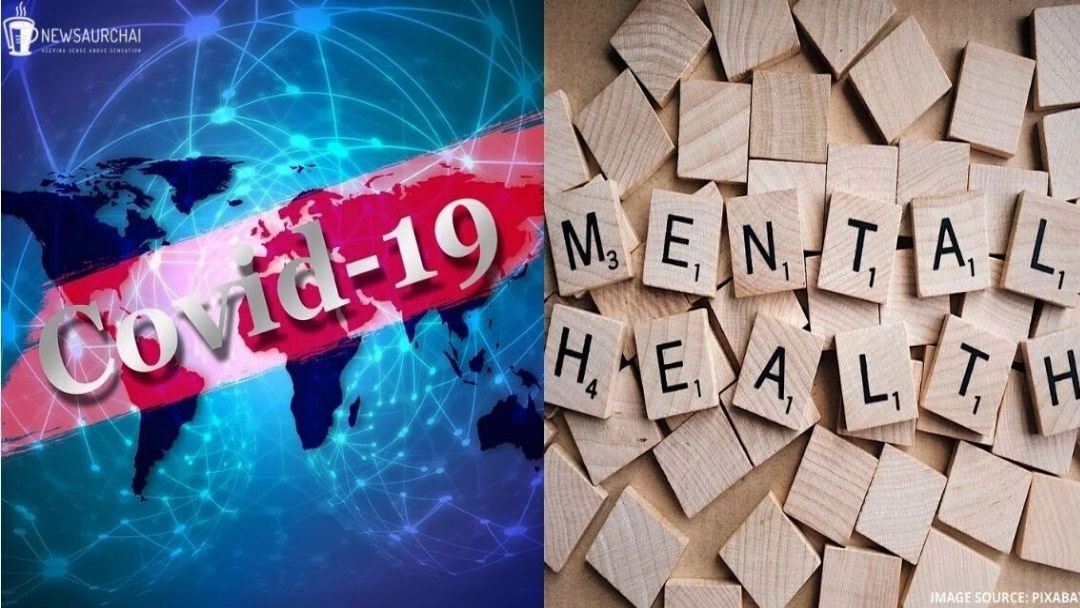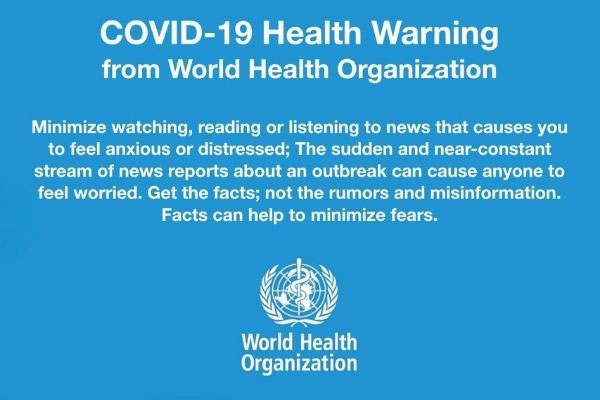
Over 8000 deaths worldwide and the rapid spread of the Coronavirus have gripped the globe in fear. Media is full of reports of deaths and the terrifying tales from quarantine facilities. The constant dissemination of the coronavirus-related news has taken a toll on the mental health of people.
Many people who have underlying health conditions, like anxiety and Obsessive-compulsive disorder (OCD), and those who are living in isolation to try and contain the spread of the pandemic are finding it difficult to safeguard their mental health.
Being concerned is understandable; however, letting the situation affect your mental health only worsens the situation. This is one reason why the social media platforms welcomed the advice released by the World Health Organisation to protect mental health in the age of coronavirus scare.
The fear of being out of control and incapable of tolerating uncertainty are some of the common characteristics of anxiety disorders. So it’s expected that many individuals with pre-existing anxiety are facing challenges at the moment.

Limit the news, choose only what you want:
Reading all of the news in social media will only make you panicked. Choose wisely what you want to read/listen/watch. All that you see on social media may not be true or relevant. Here are some ways to which you can control your anxiety during a situation like of coronavirus outbreak:
- Restrict the amount of time you spend reading or watching things which aren’t making you feel better. Possibly decide on a specific time to check the news.
- There is a lot of misinformation whirling around – stay informed by sticking to trusted sources of information such as government and National Health Service websites.
Take a break from social media:
Social media nowadays are filled with wanted and unwanted information; if one is not able to differentiate what to and what not to read/watch, you will end up misleading yourself. Here is how you can make your social media valuable rather than a bin where people dump all the unwanted/misleading myths:
- Mute keywords which might be triggering on Twitter and unfollow or mute accounts.
- Mute WhatsApp groups and hide Facebook posts and feeds if you find them too overwhelming. The best option is block or report if you see any account posting misleading information.
Wash your hands – but not unreasonably:
One of the main advice given by the health department and all other health authorities/organisations is to wash hands; however, people have taken this advice to another extreme where everyone is turning out to be an OCD.
OCD Action has seen an increase in support requests from people whose fears have become focused on the coronavirus pandemic.
For people with OCD and some types of anxiety, being always told to wash your hands can be especially challenging to hear.
For people who are living with OCD or who have overcome OCD and is practising to live a normal life–wash hands–and such hygiene-related instructions can be a trigger. Moreover, quarantine is something which will trigger people who have overcome OCD, as it would have taken a lot of effort for them to come out of their home or comfort zone.
Staying put in one’s house will give people suffering or who have been suffering from OCD a lot of free time, which will ultimately harm the person’s mental health.
Stay connected with people:
As the coronavirus is spreading widely it is the time you have a check on a list of right phone numbers and email address of people who you want to be connected with or who you care about. Prepare a to-do list so that you are occupied with something rather than bored.
- You are anyhow put in a restriction to move around, so why don’t you make this time useful. Maintain a schedule for everything–be it to spending time online or sitting alone.
- Better catch up with all those things you always longed to do, but never had the time. Read a book or watch a series you wanted to see or simply start looking after your health or spend quality time with family.
- Now is the time to build your immunity, so do some stretching and light workout and eat food cooked at home. Put a rest to all the junk, cook some healthy food for yourself and family.
#AskWHO on mental health during #COVID19. Ask your questions to our expert Aiysha Malik. https://t.co/7iUsK6sSE1
— World Health Organization (WHO) (@WHO) March 10, 2020
Dodge burnout:
With month and weeks of the coronavirus pandemic ahead, it is important to have downtime.
Follow the “APPLE” method to keep a check on your anxiety from getting worse.
- ACKNOWLEDGE – Notice and acknowledge the uncertainty as it comes to mind.
- PAUSE – Don’t react as you usually do. Don’t react at all. Just pause and breathe.
- PULL BACK – Tell yourself this is just the anxiety or depression talking, and this thought or feeling is only a thought or feeling. Don’t believe everything you think! Thoughts are not statements of fact.
- LET GO – Let go of the thought or feeling. It will pass, you don’t have to respond to them. You might imagine those thoughts floating away in a bubble or cloud.
- EXPLORE – Explore the present moment, because right now, at this moment, all is well. Notice your breathing and the sensations of breathing. Notice the ground beneath you. Look around and notice what you see, what you hear, what you can touch, what you can smell. Right NOW. Then, SHIFT YOUR FOCUS OF ATTENTION to something else – on what you need to do, on what you were doing before you noticed the worry, or do something else – mindfully, with your full attention.
Yes, it a time of worries, but not to be panicked; you can avoid listening/watching/reading things that disturb your mental health.






One Comment